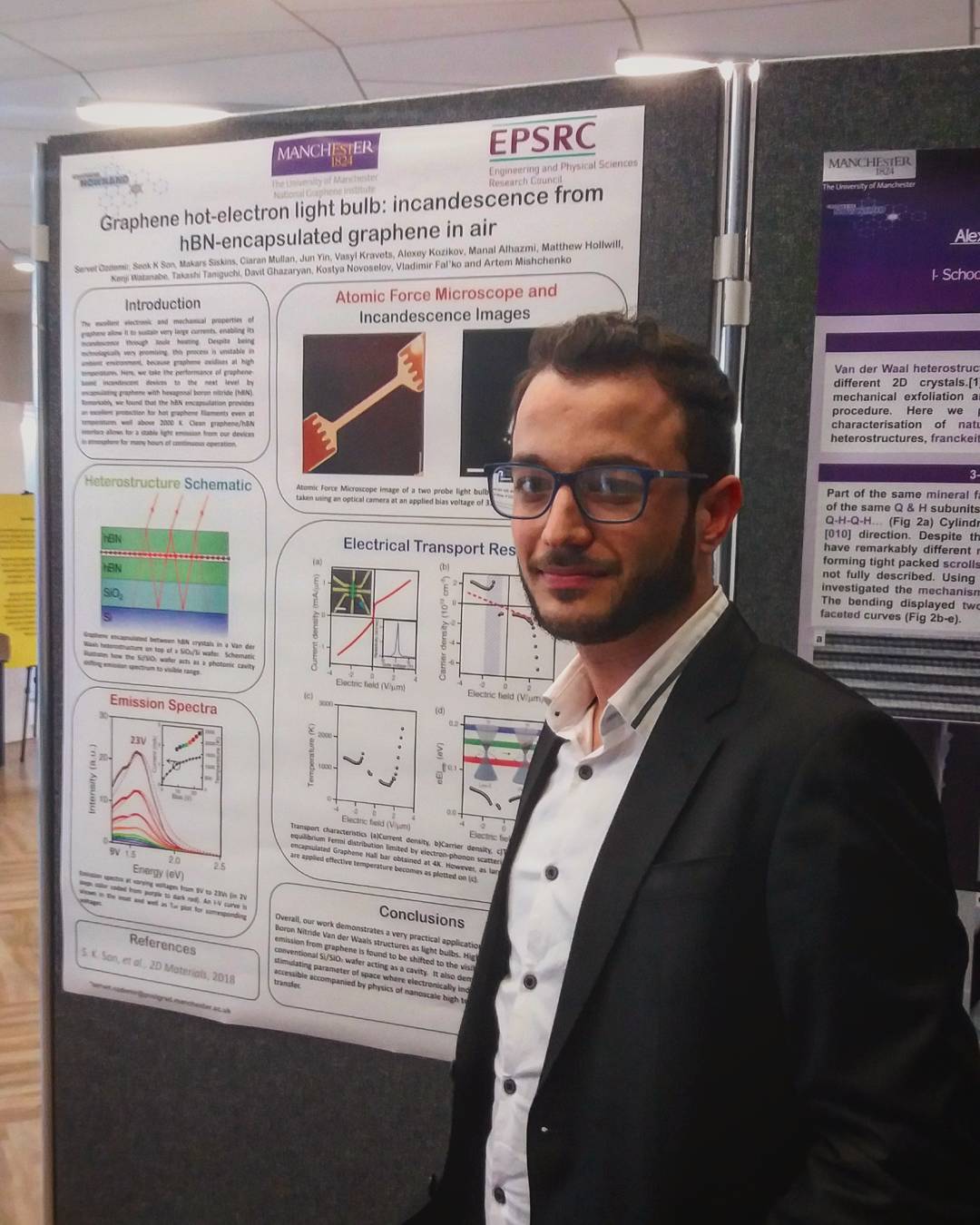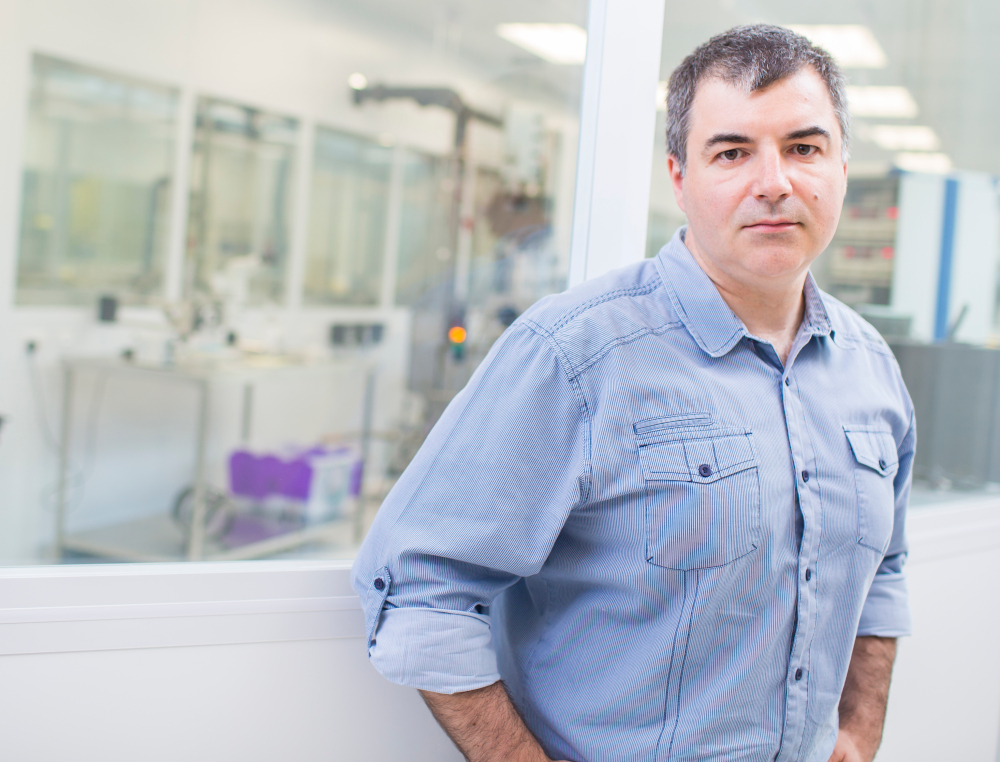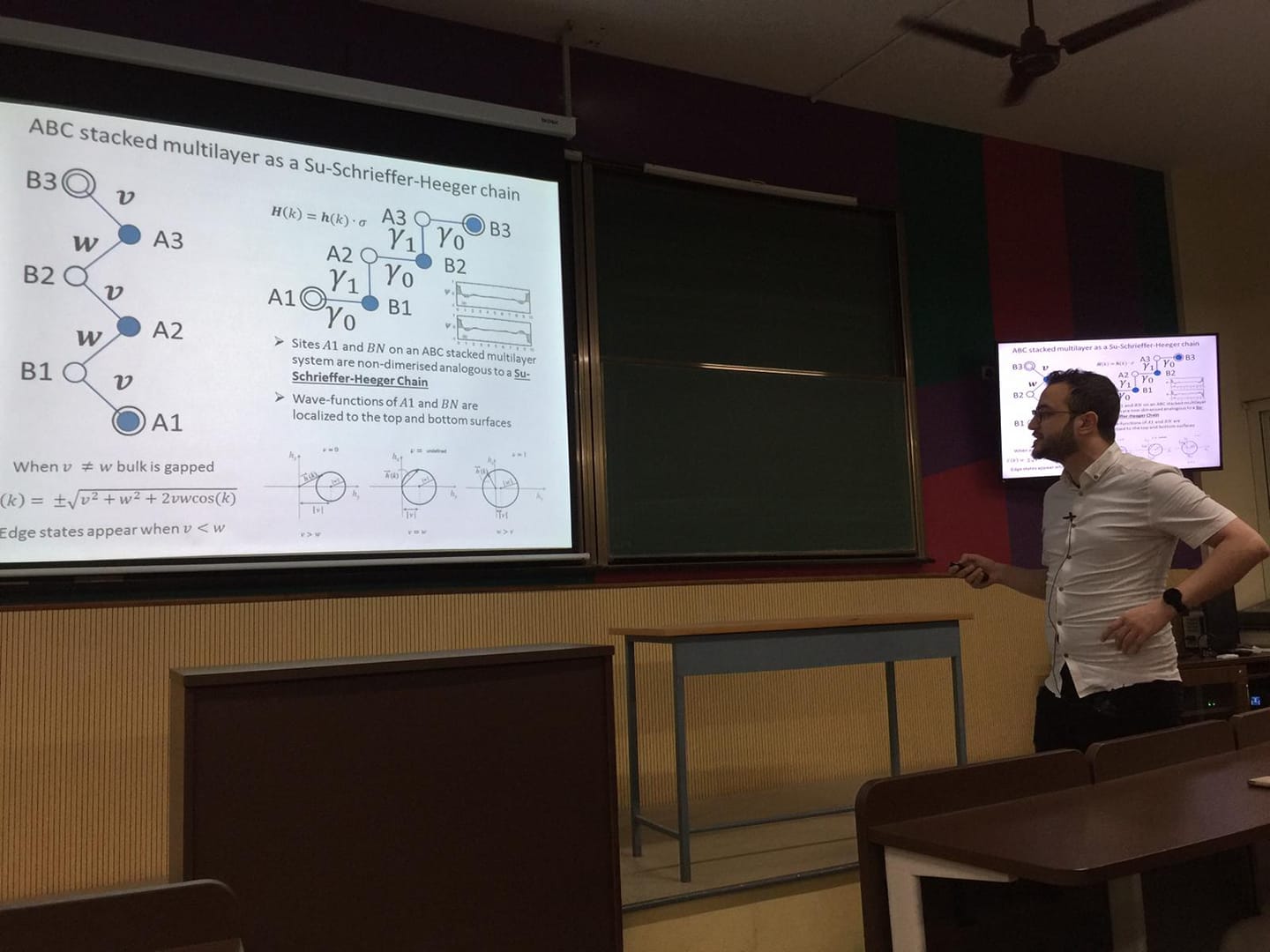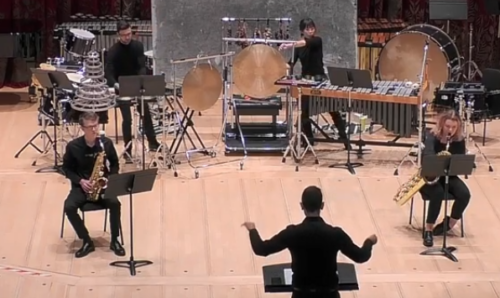Postgrad profile: PhD researcher Servet Ozdemir
After graduation 1 September 2020
As an undergraduate at Warwick, Servet listened to a talk on graphene by Nobel prize laureate Prof Kostya Novoselov and decided he had to work with him – and that’s what he does now. He told us about his research on 2d materials, and why you shouldn’t let a bad exam or two put you off Physics.

Can you give a brief description of your research?
Discovery of graphene and other 2D materials has enabled an explosion of research with major manifestations of quantum physics on these mesoscopic atomically thin solids being found in electron transport experiments. My current research at Manchester is about extending our current understanding of 2D materials and exploring new manifestations of physics on high quality electronic devices beyond graphene.
These devices are assembled into van der Waals heterostructures with high quality crystals and are studied at extremely low temperatures, after generating some of the coldest points in the universe, with temperatures reaching down to 10mK and extremely high magnetic fields of up to 18T and more. One of these systems that I am currently studying is rhombohedral graphite, which we have recently shown to be an N-layer generalisation of graphene, where N is the number of layers, in low energy limit. These low energy surface states arise due to the non-trivial topology of bulk Bloch bands and exhibit a fascinating playground for many-body physics, such as magnetism and superconductivity.
What was your undergraduate degree in, and where did you do it?
During my A-level studies, I have developed a deep passion for physics and decided to study it as my undergraduate subject. I have completed a 4-year undergraduate degree with an integrated masters at the University of Warwick, which was hard work, but was very rewarding since it got me to my current research position where I am currently exploring fascinating phenomena at the frontiers of solid state physics.
When did you decide you were going to do a PhD?
Perhaps a bit unusual, but I knew that I wanted to do a PhD and pursue a career in academia, when my huge passion for physics kicked in at around 16 years of age. The main challenge I guess, was to pick the field of research for my PhD. I have done that during my final year Warwick.
Why did you come to Manchester to do your PhD?

For my final year masters project, I was studying two-dimensional transport properties of more traditional semiconductor heterostructures and it was then, when I made a personal discovery of graphene. The personal excitement about graphene reached its peak when I got to listen to the guest lecture of my current supervisor Sir Kostya Novoselov at Warwick. At that point, I knew I wanted to move to Manchester for my PhD and work under Kostya. Here I was lucky enough to learn how to carry out quantum transport experiments by my other supervisor Prof. Artem Mishchenko.
Is there anything you did as a student that you think has particularly helped in what you do now?
I have spent my summer holidays during my undergraduate years doing a few research placements, at a couple of different universities. Experience in research is very important, and when you are beginning a PhD, experience of research gives one a head start. I would advise everybody thinking about a PhD to do a research internship and gain some experience.
Is there anything you wish you had known as an undergraduate?
If you have managed to end up as an undergraduate student in one of the top universities, it usually means you have the talent to be a good physicist. Being good at research is not necessarily the same as being good at exams, it takes a lot of perseverance and long-term stamina. I would say they should not be put off a research career by a few bad exams if they have a genuine passion for a particular research field.
What are your plans for after your PhD?
I have recently received an offer of a post-doctoral research associate position in the Quantum Photonics laboratory of Prof. Brian Gerardot up in Scotland. I will be learning how to do optics to accompany my current electronics expertise and continue to hunt for new physics in mesoscopic devices of van der Waals heterostructures. In the long term, I am hoping to find a tenure track position in a respected university.





Leave a Reply